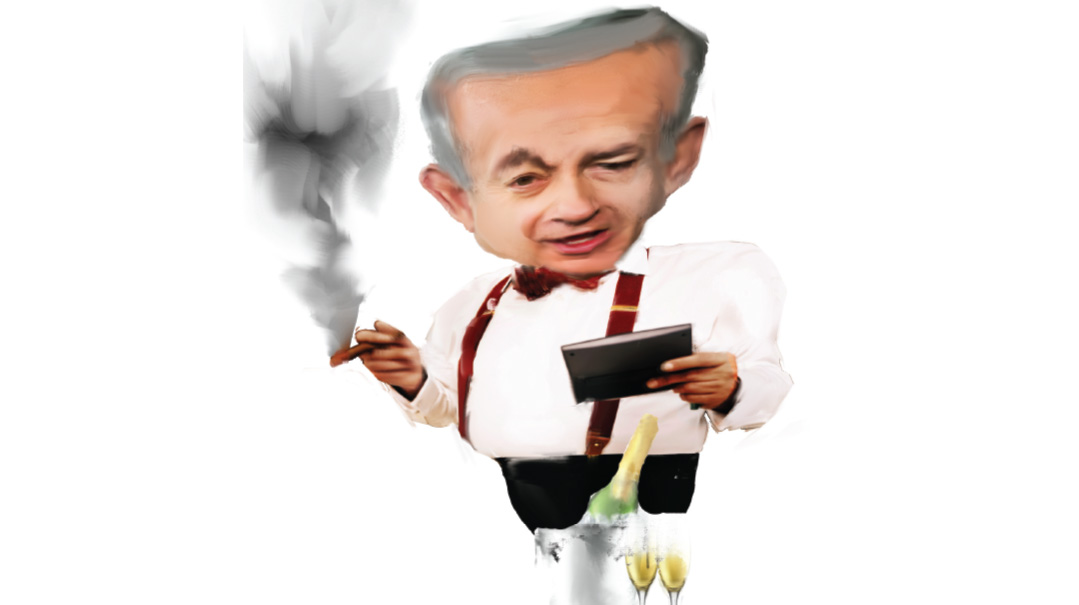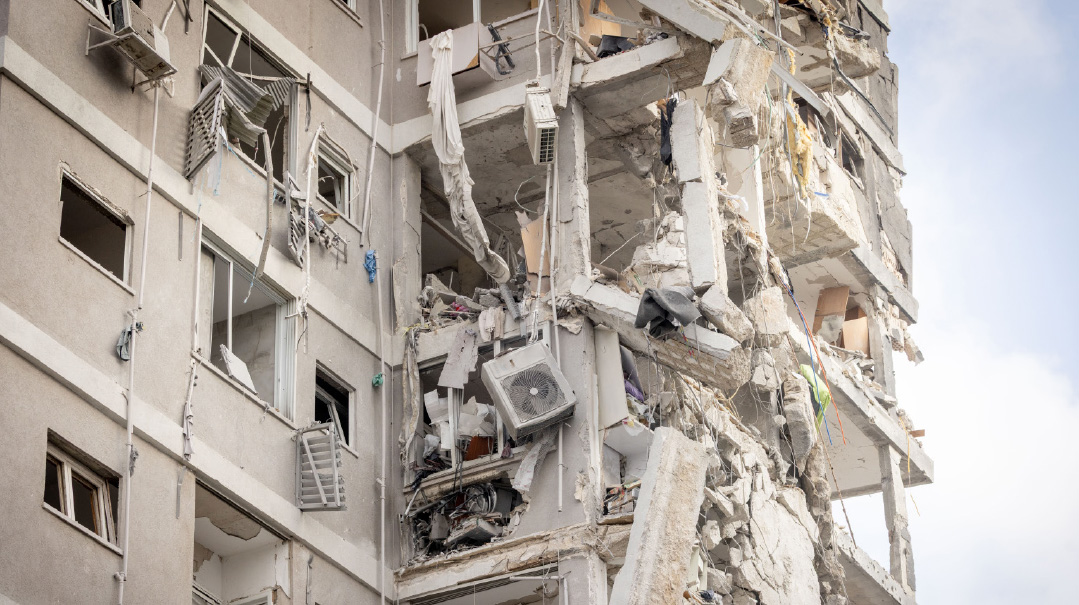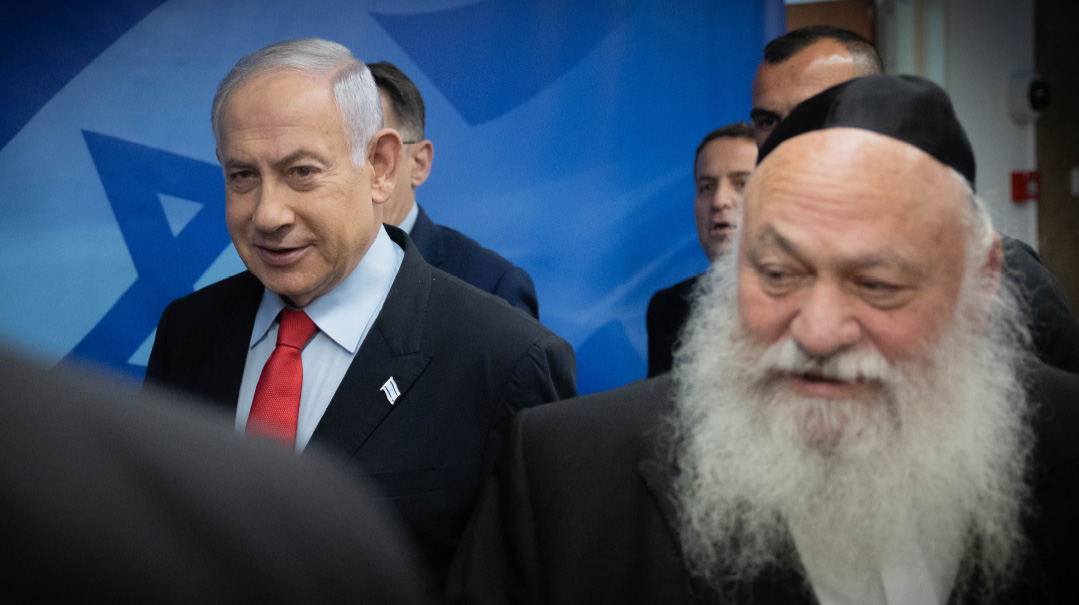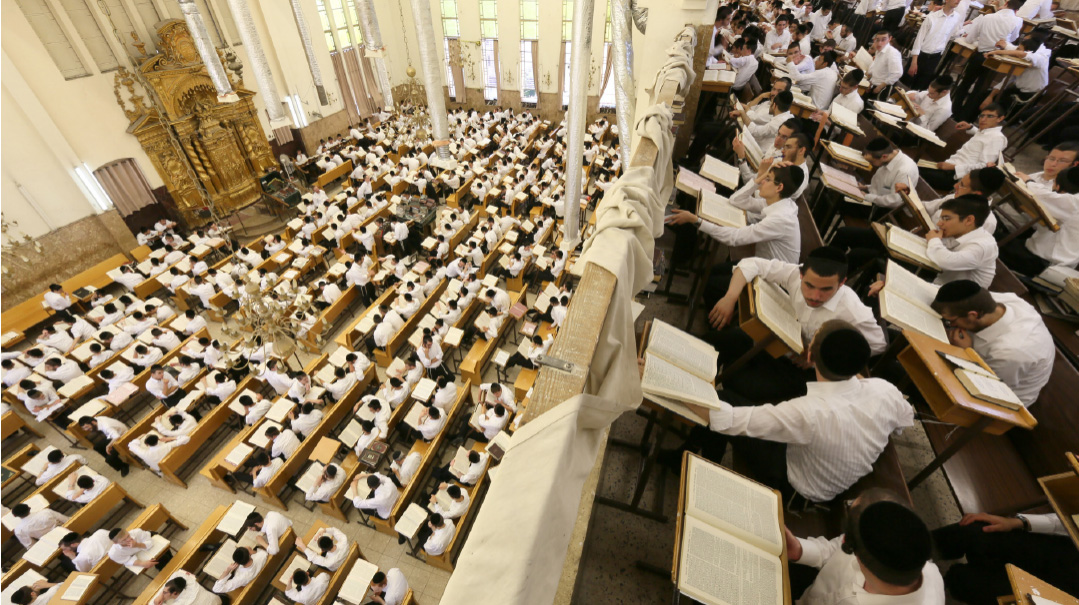The Trials of Bibi

Former (and future?) prime minister Benjamin Netanyahu is locked in the fight of his life

IN a narrow east Jerusalem street bearing the name of Salah Ad-Din (or Saladin), the Muslim military leader who freed Jerusalem from the Crusaders, former (and future?) prime minister Benjamin Netanyahu is locked in the fight of his life.
The Netanyahu trial, which is being conducted in a parallel legal universe, theoretically detached from the chaos of Israeli politics, has morphed over the past few weeks into a grotesque comedy starring an American-Israeli producer, an Australian billionaire, Cuban cigars, French champagne, and Romanian luxury jewelry.
Over the years, rumors swirled about Bibi’s relationships with a number of billionaires and the extravagant gifts he received from them.
But only with Case 1000 — after three decades of gossip amplified by his political rivals, whose numbers increased exponentially the longer Bibi remained in power — were the rumors subjected to legal scrutiny. Of the three indictments against Netanyahu, Case 1000 is by far the most lurid.
Netanyahu and his wife are accused of receiving gifts of cigars, champagne, and luxury jewelry from Israeli-American film producer Arnon Milchan and Australian businessman James Packer, to a cumulative value of almost NIS 700,000. Last week Hadas Klein, Arnon Milchan’s personal assistant, took the witness stand before the panel of three judges to testify about the stream of gifts whose delivery she oversaw, in what became the hottest show in town.
Klein was cross-examined by the defense for hours, discussing what she saw in sordid detail. She was grilled about the quantities of the champagne ordered, the quality of the Cuban cigars, the dates of the deliveries, and the identity of the participants in each party. The prosecution spared no effort to prove that the Netanyahu family was almost the sole beneficiary of the goods. The defense tried to end the party by proving that Netanyahu was only one beneficiary out of multiple partygoers.
If the fate of an Israeli prime minister didn’t hang in the balance, the scene could easily be turned into a Hollywood comedy.
Arnon Milchan is a colorful Israeli film producer who rose to become one of the most successful executives in Hollywood. Over the years, Milchan was known for cultivating close relationships with each Israeli prime minister in turn. Sunlight is the best disinfectant, they say, but sometimes the harsh glare of the courtroom’s fluorescent lighting is even more effective. If nothing else, the Netanyahu trial has brought to light the methods by which the Milchans of this world were able to gain such close access to Israeli decision- makers over the years.
Netanyahu’s defense attorneys have convincingly established that Bibi was not the sole beneficiary of Milchan’s generosity. Milchan had direct access to current Israeli prime minister Yair Lapid, who worked for him before entering politics, and whom he met in secret after the latter’s appointment as finance minister in 2013. By a twist of fate, Yair Lapid is one of the prosecution’s witnesses in the Netanyahu trial, so the two prime ministers will meet in the courtroom, one from the witness stand, the other from the dock. At this stage, it’s too early to say which of them will be the sitting prime minister, which the former, by that time.
And back to Milchan: On his list of beneficiaries was late president Shimon Peres, to whose Peres Center for Peace Milchan donated NIS 1,000,000, a gift Netanyahu tried to block.
Hadas Klein, Milchan’s secretary, emphasized that Milchan avoided asking for any specific quid pro quo for his gifts, and even recounted that Shimon Peres advised him to liquidate his assets in Israel. But there’s a return for every investment, certainly for a famous mogul like himself. Milchan got his payback in the form of constant access to the Israeli prime minister, with the attendant prestige.
In the course of the trial, we learned how, for billionaires, the whole world is a very narrow bridge — to a tax haven. For a decade, Milchan shuttled from one country to another without staying anywhere long enough to be subject to taxation.
Legislation proposed in 2013, when Netanyahu was prime minister, would have extended Milchan’s tax-exempt status in Israel. In order to continue skipping between countries, Milchan sought and obtained Netanyahu’s help in extending his American residency visa.
There’s no saying at this point whether the indictment will end with Netanyahu’s conviction, but the entire political system — an Israeli shakshuka of capital and government — is being shown up in all its sordidness in the witness stand of Netanyahu’s trial, day after day.
Just as the revelations of former president Trump’s involvement in the storming of the Capitol haven’t shifted voters across the aisle, the testimony in Netanyahu’s trial hasn’t affected his standing in the polls either, three months away from the election.
The right wing views Netanyahu’s trial as a politicized trial hatched by a hostile state prosecution and biased attorney general. Every question that causes a prosecution witness to stumble is instantly shared on social media as proof that Netanyahu is being unfairly targeted by an adversarial justice system.
Anyone who operates within the walls of a courtroom knows you can’t attach undue importance to every question and answer. The courtroom isn’t the place for manic depression, or, in this case, Bibi-manic depression. You don’t count your money when you’re sitting at the table, and you don’t celebrate legal victories before the verdict is in, either.
In the US, criminal lawyers will tell their clients that the only people they should look at in the courtroom are the jury members on the left side of the hall. In the Israeli bench trial system, you can look directly at the panel of judges at the front of the room, without having to watch the jury from the corner of your eye.
But in Netanyahu’s case, this is only partly true. Netanyahu’s attorneys can’t overlook the trial’s ramifications for the parallel trial taking place in public opinion, which will be decided at the ballot box.
The hearings in Netanyahu’s criminal trial, which were put on hold this week as the courts went into recess until September, will continue for months or years. Unless a plea deal between Netanyahu and the prosecution nips the process in the bud.
But in the public trial, which will be decided after the chagim in Tishrei, Netanyahu is staying firm with a line of defense that’s persuading the persuaded. With trust in the justice system at a historic low, Bibi is only gaining ground in the polls.
In the political trial, all Israeli voters are jury members, and their verdict will come much sooner than that of the panel of judges in the criminal trial.
“They found an elephant in Africa with skin as thick as Bibi’s,” Netanyahu joked with Milchan according to the evidence.
The man with the thickest skin in Israeli politics is fighting for the votes of millions of jury members who will show up at the ballot box on two fronts: on the political front, but also on the legal front.
(Originally featured in Mishpacha, Issue 921)
Oops! We could not locate your form.







